Graham Reid | | 3 min read
I Need a Man to Love (take three)
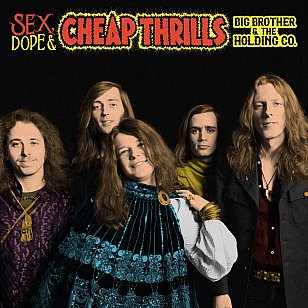
Aside from the great Beth Hart – who played her in a theatre production – few women singers today have any of the grit, depth and soul-scouring style of Janis Joplin. And even fewer seem to aspire to that kind of rawness.
Joplin's influence isn't evident in many corners of rock these days – heaven forbid but Jewel seems more influential – and you do wonder if it was her “lifestyle choices” which put young singers off her as a role model.
But you simply cannot deny that Joplin was a vocal powerhouse with the kind of energy and explosiveness you only get if you throw a motor-mower into an electrical substation.
Her body of work was small – two albums with Big Brother and the Holding Company, two solo studio albums, the final one Pearl released after her death at 27 in 1970 – although live stuff and outtakes have helped pad out her brief career.
Pearl might have been her most popular album but the thrilling Cheap Thrills album with Big Brother is the most convincing and rock'n'blues album in her catalogue. It sounded live but four of the seven songs were studio recordings.
 When the album came out in '68 it was not only a massive success but drew considerable attention for its cover by Robert Crumb. Ironically his original artwork had been rejected by the band and what became the front was originally intended for the back because it included the track listing.
When the album came out in '68 it was not only a massive success but drew considerable attention for its cover by Robert Crumb. Ironically his original artwork had been rejected by the band and what became the front was originally intended for the back because it included the track listing.
However the cover was the centre of some controversy. At the last minute the record company dropped one track – the brief freakout Harry – and someone within CBS was delegated to wipe out “Harry” on the cover and write in “Art: R. Crumb”.
Crumb was outraged at been sidelined in the decision and apparently never picked up the cheque nor wanted the art back.
The album title was also rejected by CBS.
The band wanted Sex, Dope and Cheap Thrills as the full title (although drummer Dave Getz admits they knew that idea wouldn't fly) and they posed naked in bed together for a cover shot. That too was rejected.
But as always it was what was in the grooves that counted and this was rowdy blues-rock album closing with their treatment of Big Mama Thornton's Ball and Chain which became a Joplin signature song.
In the rush to acclaim Joplin however, the band often get overlooked . . . and they were a might, rugged unit which could get into sprawling jams but also lock down tight.
This double disc isn't a reissue but rather an alternate run-through of the album using mostly unreleased takes as well as material from the Columbia Legacy reissue of Cheap Thrills and a live version of Ball and Chain recorded at San Francisco's Winterland where the guitars of Sam Andrew and James Gurley are close to Blue Cheer's fuzzed-out psychedelics.
Over these 30 tracks – two cracking different takes of I Need a Man to Love and Summertime, three of Piece of My Heart among them – the band as much as Joplin impress.
Okay, no one would claim the vocals of Andrew or Gurley are up to much but its the rollicking musicianship which propels this.
At the start of the first take of Catch Me Daddy the producer John Simon says, “Don't stop if you fuck up, let's get something down we can listen to”.
And away they go into a chugging boogie, like Chuck Berry on STP, and they kinda fuck it up. But they take it right down and Joplin gets intimate before it builds to one her full-throated roars.
Originals like that and It's a Deal were little more than excuses for songs and vehicles for crowd-pleasing psychedelic rock. Although something like Easy Once You Know How is a retro-pop song at core with massive acid rock plastered onto it.
The Joplin-penned blues piano ballad Turtle Blues (two takes) connect her with that great tradition of women blues singers she tapped into and was in the lineage. And the acoustic guitar passages on Summertime by Andrew remind you that he had classical training.
Something called How Many Times Blues Jam (with an uncredited pianist) speaks for itself.
Other than allowing you to be once more awe-struck by Joplin's vocal power (and nuance), this collection won't change your opinion of her.
But – especially when played loud – you may well come to appreciate the grit, depth and scouring rawness of the band.
Fewer today seem to aspire to that either.

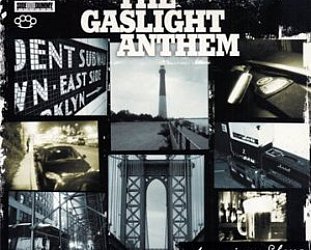
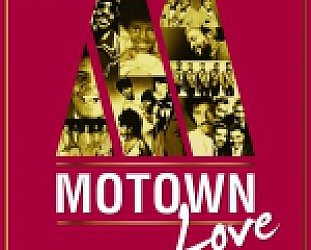
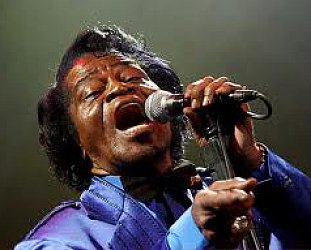
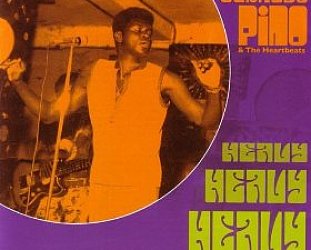
post a comment